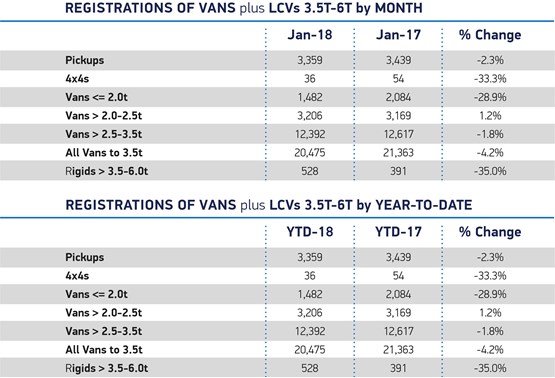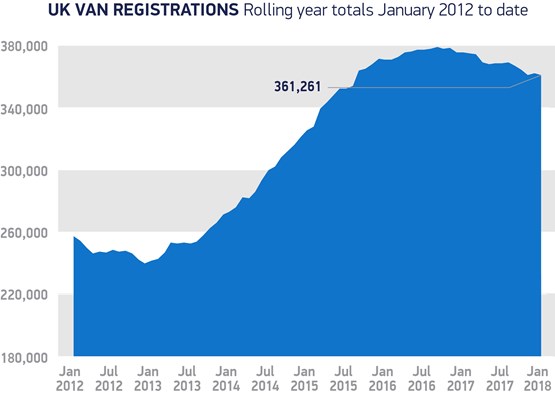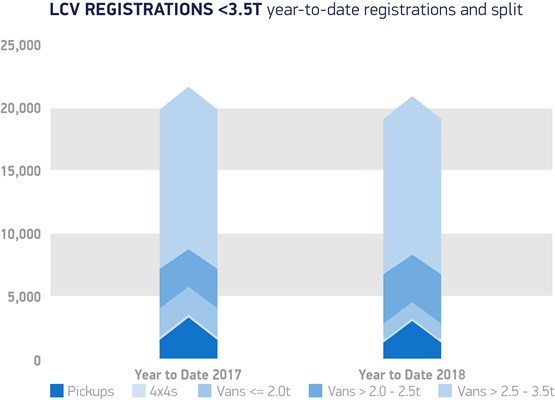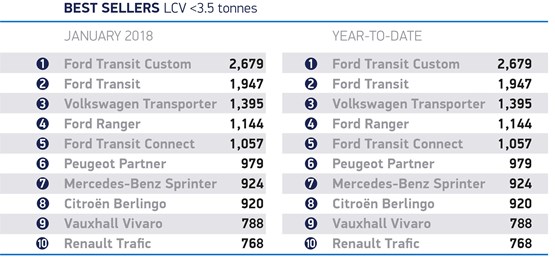The new van market fell by 4.2% in January to 20,475 units when compared with the same month last year, according to the latest figures released today by the Society of Motor Manufacturers and Traders (SMMT).
The decline amounts to 888 fewer vans being driven off forecourts in the first month of the year, compared with 2017.
Car-derived vans weighing less than 2.0 tonnes saw a double digit decline, with demand falling by 28.9% against January 2017. Meanwhile, the rest of the market remained steady, with pickups and large vans falling by 2.3% and 1.8% respectively, and medium vans weighing 2.0-2.5 tonnes registering an uplift of 1.2%.
Mike Hawes, SMMT chief executive, said: “With business confidence continuing to be affected by economic and political uncertainty, this decline comes as no surprise.
“Despite this, the UK van market remains at a very high level and, although purchasing patterns are cyclical they do fluctuate with business confidence, so we continue to look to government to improve conditions so the sector can grow.”
Russell Adams, commercial vehicle manager at Lex Autolease, told Commercial Fleet that January is traditionally a quiet month so it was not surprising or “overly concerning” to see a dip in new light commercial vehicle (LCV) registrations.
He added: “We’re still seeing a high level of enquiries, particularly in the medium and high weight ranges, which suggests the market may gain momentum as we move further into 2018.
“The Government’s direction of travel on emissions means we’re continuing to see interest in alternatively fuelled vehicles.
“The low-emissions van market is still in its infancy, which means new diesel is still the right fuel type for a large number of job roles. As electric vehicle technologies progress and investment in the UK’s charging infrastructure increases, viable alternatives to conventional fuels will improve for LCV fleets.”
























Login to comment
Comments
No comments have been made yet.